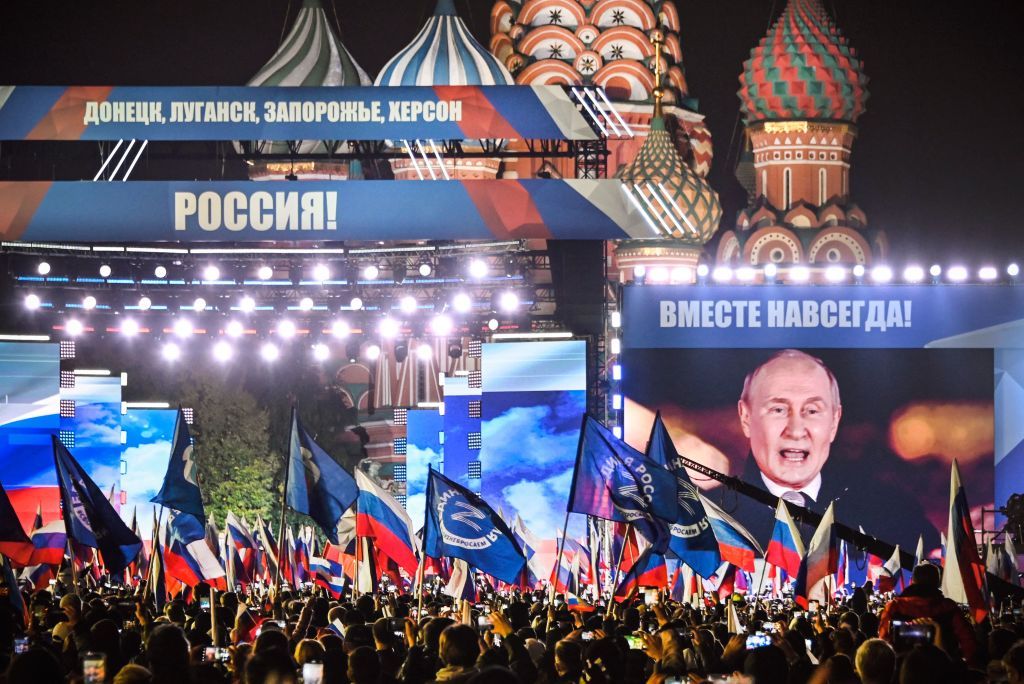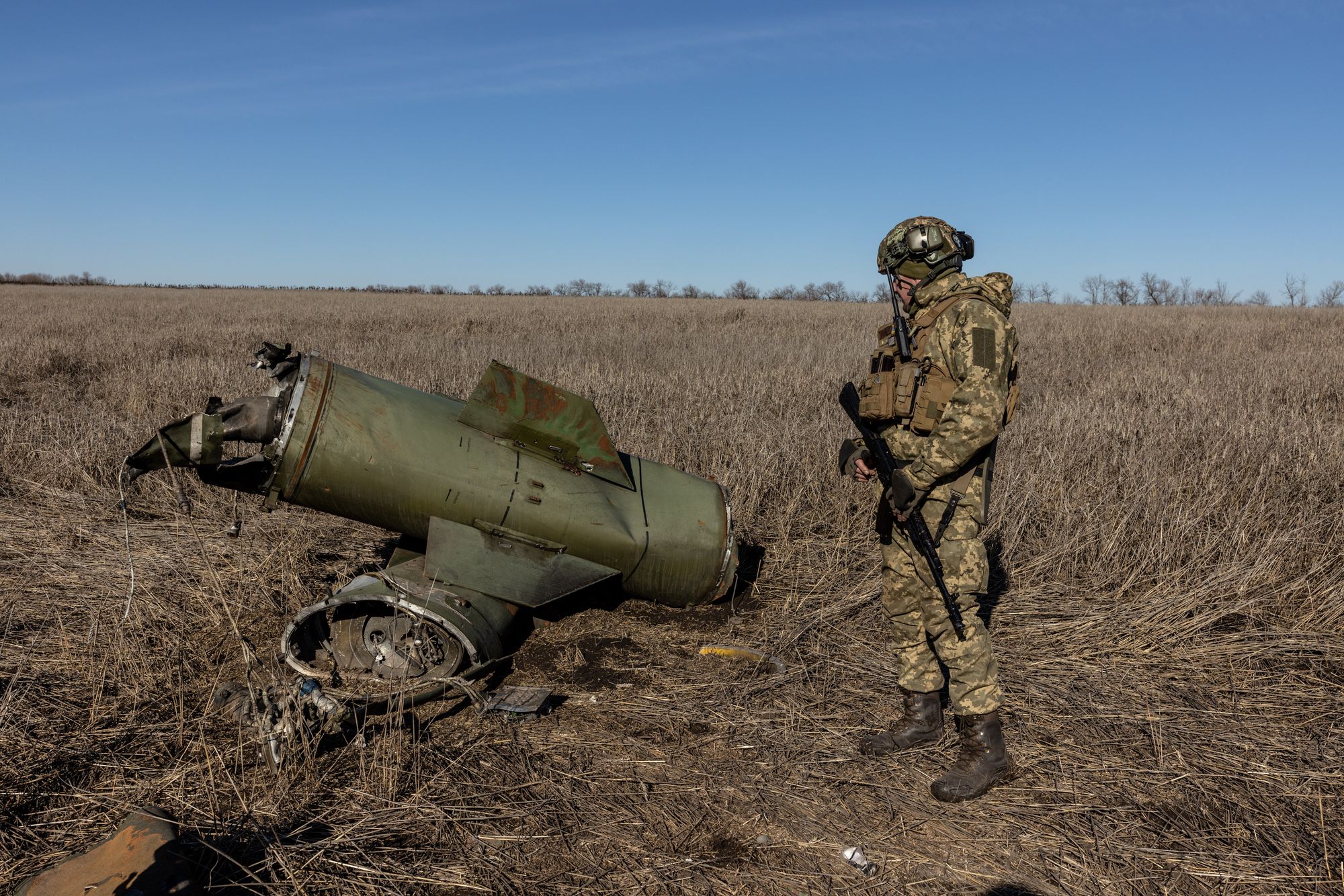Ukraine, allies must do more to hit Russia’s economy, says Moral Rating Agency head

As Yevgeny Prigozhin's mutiny exposed Russia's political weakness, there's an opportunity to follow up with an economic punch by targeting foreign companies that stayed in the country.
This is the belief of Mark Dixon, the director of the Moral Rating Agency, which scrutinizes foreign companies that operate in the Russian market and exposes the details of their involvement to shame them into leaving.
The West can keep piling the pressure on Western companies to fully exit the Russian market. But Ukraine should also ensure Russian companies don't operate in Ukraine, and companies that operate in Russia shouldn't be allowed to do business here either, Dixon said.
"It's a perfect storm that Russia is in at the moment," he said. "I don't know if this perfect storm is enough to sink the ship immediately, I think it's a pretty good perfect storm. But the more little tornadoes we can add, the better."
Shortly into the 2022 full-scale invasion, Dixon, a U.K. mergers and acquisitions expert, saw many pledges by Western companies to wind down their activities in Russia.
He decided to confirm if they did.
It turned out, he said, that many were engaged in "moral washing" by pledging to leave but keeping some or all operations or assets in Russia, using insincere excuses.
Thus, the Moral Rating Agency was born, releasing regular reports about the involvement of top companies in Russia.
As of February 24, 2023, out of 114 large international corporations involved with Russia at the time of the 2022 invasion, only 17 made a full exit, while 63 made a partial exit, and 44 still remain in full, according to the agency.
The companies that left include Apple, Amazon, BMW, Dell, Ford, Honda, Tesco, and Facebook.
Partially departed companies include Airbus, BNP Paribas, Boeing, Citigroup, Comcast, E.ON, FedEx, General Electric, General Motors, Goldman Sachs, Huawei, Hyundai, Lenovo, Mercedez, Nestle, Pepsi, Samsung, Siemens, Toyota, Volkswagen, and Disney.
Still remaining include Bank of America, Alibaba, a number of Chinese state companies, Japan Post, Mitsubishi, Roche Group, Tencent, Tokyo Electric Power, Walgreens Boots Alliance, and more.
In Kyiv, Dixon sat down for an interview with the Kyiv Independent to discuss the steps he thinks the Ukrainian government should take and his rationale for these suggestions.
"It's a really good chance now, following the recent failed (Wagner Group) rebellion, because it's yet another thing we can hit them with," he said.
"This will confuse a lot of Russians… If, on top of that, we can pull the economic rug from under the feet of Russia so that the people are even more disappointed, distressed, confused, worried, then I think this can be the straw that breaks the camel's back or at least it's an important part of the picture."
Kick them out
Fifteen months into Russia's full-scale invasion, the Russian economy is doing better than many expected. Russian GDP decreased by only 2.1 percent in 2022, compared to Ukraine's decrease of nearly 30.
In 2023, the World Bank predicts Russia's gross domestic product will decrease by 0.2 percent, and the International Monetary Fund expects a 0.7 growth.

That's a stronger showing than that of Germany and the U.K. and an equivalent to French and Italian 2023 GDP growth.
Dixon said that while the Western countries can do more to "unplug" Russia, so can the Ukrainian government, firstly by halting the operation of Russian companies in the country.
"I think they should make it illegal for Russian companies, private, public, state-owned, any companies to operate here as any minority or total shareholders, to do anything — sell, produce, trade, et cetera. It should be totally unplugged."
He also believes that it should be a criminal offense for Ukrainian persons to aid or fail to report such activities — this is to threaten the locals that enable Russian owners.
A recent analysis by the transparency website YouControl found that its system contained reports about 919 Ukrainian companies that were either sanctioned or connected with sanctioned individuals or entities.
Many of those companies had Russian nationals or pro-Russian politicians and businessmen as shareholders.
The second thing Dixon advocates is for Ukraine to kick international companies out of its market that continue to do business in Russia, as they are fueling the Russian economy, contributing to the Russian war effort.
"We are asking the companies to make sacrifices of their Russian revenues," he said. "So Ukraine should be willing to make revenue sacrifices from companies that don't behave."
Kicking them out could also be a sign of reciprocity by Ukraine, followed by opening its market to companies that are not working in Russia, including domestic businesses.
"You're giving good companies, domestic as well as foreign, an opportunity to get into the Ukrainian market, to have the right partners for the future," he said. "People see that opportunity. Personally, I think Ukraine will be a good market in the future."
More than that, he said, kicking these companies out is a matter of principle.
In the meantime, the agency continues to name and shame companies operating in Russia.
Recently, MRA pointed out that Unilever still contributes $700 million to Russia's budget, then broke down how much military hardware that kind of money can buy.
That can pay for one thermobaric rocket and one Kamov-52 helicopter once every eight days, one Kalibr missile every 12 hours, and one Iranian drone every 15 minutes.
Ukraine's National Corruption Prevention Agency (NACP) added Unilever to the "international sponsors of war" list for not exiting Russia.
Dixon said that companies use several excuses to remain in the market.
One is failing to find a buyer, which often happens because they ask for unreasonable prices, then drag out the sale process until there are no buyers at all. Some countries that export or import from Russia said they have ongoing contracts to consider.
Another excuse is the humanitarian argument, he said.
General Electric has four major activities in Russia, and it's keeping two of them: supporting hospitals and power stations because power stations are important for the economy.
"Sure, they're important for an economy. Power stations make the power that make the rockets that destroy the power stations in Ukraine," Dixon said.












